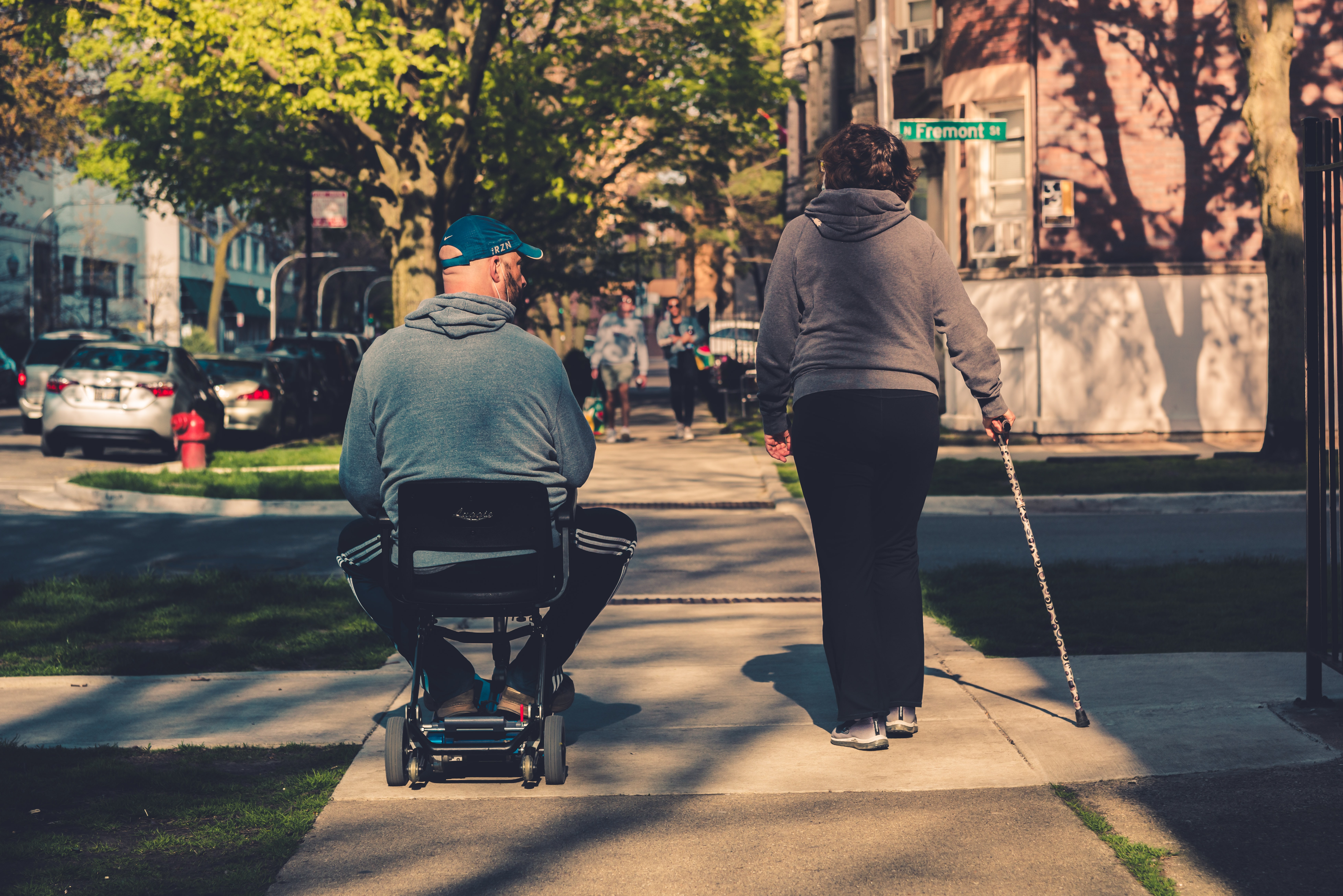Do you qualify for SSI benefits? To qualify for Supplemental Security Income (SSI), you will need to medically qualify as well as be within the financial limitations.
It can be challenging to qualify for disability benefits in general, but SSI comes with strict financial limitations as well. Here's a little more information on how you may qualify for SSI.
The Social Security Administration (SSA) manages several safety net programs that help Americans financially. Two of the best-known programs supplement retirement income and provide disability benefits to qualified Americans who cannot work due to a disabling condition. One SSA program that often falls under the radar is called Supplemental Security Income (SSI), which provides monthly payments to people who earn a limited income and possess few financial resources.
Further Reading: What Conditions Qualify For Disability?
What Is SSI?
Supplemental Security Income (SSI) is a disability program designed for those with a demonstrated financial need and a disability that prevents them from substantial gainful activity. In some cases, those over 65 years old may qualify for SSI even if they are not completely disabled according to the Social Security Administration (SSA)’s definition of total disability.
SSI benefits are awarded every month. Most claimants receive approximately $700 from the SSA per month in SSI benefits. You are not eligible for additional benefits for your children.
Further Reading: What Is SSI?
Qualifying Before Retirement
For those under 65 years of age, you must establish that you are both completely disabled and that you do not have adequate other means of support to qualify for SSI benefits. This means proving that your disability makes it impossible for you to perform any work, including both work which you have done before and any work for which you could otherwise be trained.
Who is Eligible for SSI?
The underlying criterion for SSI eligibility is you must be a United States citizen or a lawful resident of the country. Lawful residents that are not qualified as United States citizens must meet the guidelines established by a 1996 law and its subsequent amendments.
A lawful resident lives in one of the 50 states, the District of Columbia, or the Northern Mariana Islands. You cannot be absent from the United States for a full calendar month, as well as confined to an institution at the federal government’s expense. Lawful residents cannot receive any other type of cash benefits from the United States government if they expect to qualify for SSI benefits eligibility.
If you pass the citizenship standard, then SSI eligibility boils down to a couple of standards.
If you are at least 65 years old, you might qualify to receive financial assistance under the SSI program. The SSA also grants SSI eligibility for United States citizens and qualified lawful residents that are blind or disabled. For blind and disabled applicants, you must demonstrate proof of your physical limitations. Finally, the SSI program requires qualified applicants to earn a limited income and possess few financial resources.
What is Limited Income?
For 2021, the standard amount for limited income is no more than $794 per month for one person and $1,191 for a couple. The SSA defines limited income as “countable income,” such as earning a paycheck and/or receiving Social Security benefits. Because the SSA changes the criteria that define limited income, you should consult with a Social Security attorney to ensure the limited income that you earn does not exceed the maximum threshold. Otherwise, even if you are 65 years old, your limited income might exceed the maximum allowed by the SSA.
What Are Limited Resources?
The SSA defines limited resources by first calculating the cash you have on hand to pay for daily expenses. Then, the federal agency places a value on any land and other types of personal property that you own. Personal property includes motor vehicles and any asset that you can quickly liquidate into cash. A life insurance policy that contains a cash value is also considered an asset that is easily liquidated into cash. The 2021 maximum amount of limited resources allowed by the SSA is $2,000 for individuals and $3,000 for couples.
What Does Blindness and Disabled Mean?
The SSA defines blindness for SSI eligibility to be a central visual acuity that is 20/200 or less in your better eye. You might also qualify for SSI benefits if the field visual limitation in your better eye is not greater than 20 degrees.
Disabled adults must be unable to complete any type of substantial gainful activity (SGA). This means you must prove you cannot work for a period that is not less than 12 consecutive months. Through its Compassionate Allowance Program (CAP), the SSA provides immediate financial assistance for applicants that meet the minimum standards established for defining a disability.
What are the Financial Limits For SSI Benefits?
To qualify financially for SSI, you cannot own more than $2,000 worth of total countable assets (if you are married, you may jointly own up to $3,000 in assets). Countable assets are basically anything of value which you own except for the home which you live in and one vehicle. Your assets include such things as money in savings and checking accounts, IRAs and other retirement accounts, cash value in life insurance policies, vehicles (other than one vehicle for transportation), and virtually anything else of significant value.
Because SSI is for the most financially needy, you will need to be earning less than $750 per month to qualify. If you are married, your total household income need to be less than around $1,200 per month.
If you are both disabled (according to the SSA definition) and can demonstrate your financial need (insufficient or no income and less than $2,000 in assets), you may qualify for SSI.
What Are the Financial Requirements If You Are Under 18?
SSI is available to those under 18 as well. To financially qualify for SSI, the SSA will examine the household income of the working adults. The SSA has income limits set in place to determine eligibility for SSI. The limit varies based on the number of working adults in the household as well as the number of children that are ineligible for disability benefits in the household.
For example, the monthly household income limit for a single child of a single parent that also has no siblings is $3,257 while the monthly income limit of a two-parent household with one ineligible child is $4,433.

Do You Need To Work To Qualify For SSI?
If you have worked during the past ten years, you should look into applying for SSDI while you are applying for SSI. Some people qualify for both. The main difference between the programs is that SSDI is an insurance program designed for those who had been working prior to their disability. SSI is also for disabled persons, but is specifically for those who have demonstrated a financial need. If you are disabled, you may qualify for SSI whether you have worked in recent years or not.
Generally speaking, the best time to file for SSI is as soon as you realize you may have a disability which is likely to last over a year and it meets the corresponding listing in the Blue Book. You should also apply if you have a disability which is expected to lead to your death, especially if it is expected to be terminal within the next year.
Children with certain disabilities may also qualify for SSI. If you suspect your child may qualify for SSI, check with the SSA concerning the current list of accepted conditions. The list of accepted conditions does change periodically, but once a child is medically qualified for SSI, he or she will continue to collect SSI (generally paid to a representative payee such as a parent or other guardian) even if his condition is taken off the list of accepted disabilities.
How Do I Medically Qualify for Benefits?
The Social Security Administration is the agency that will determine your eligibility to receive disability benefits. An evaluator will use the Disability Evaluation Under Social Security, commonly known as the Blue Book, to determine whether your condition falls within the SSA guidelines. The Blue Book is a comprehensive listing of impairments; Part A includes all impairments for adults while Part B is exclusive to childhood conditions.
The Blue Book features 14 different sections that focus on different medical conditions, all organized by disease type (such as section 13.00 for all cancer diagnoses) or conditions that impact specific systems of the body (such as section 1.00, which covers musculoskeletal system impairments).
Once an application is received, the evaluator will use the Blue Book to determine whether your condition falls within their guidelines. If it does, then you would be eligible to receive Social Security disability benefits. Even if your condition doesn’t fall exactly within the guidelines you may be eligible to receive a medical-vocational allowance.

What To Do If You Do Not Meet a Blue Book Listing
If you do not meet a Blue Book listing, you may still be eligible for benefits through a medical vocational allowance. Under a medical vocational allowance, the SSA will use your medical evidence to determine if the condition you are experiencing impacts your ability to work.
To help support this, you can request a residual functional capacity (RFC) be completing by a doctor on your behalf. This form will help better demonstrate how the condition you are experiencing impacts your ability to work in your current field. It will go over you symptoms, medical evidence, and diagnosis. It will also elaborate on things like:
- how much weight you can lift
- how frequently you can lift something
- how long you can stand or walk
- how long you can sit
- your ability to push or pull
The doctor will also have to explain if you can do things like balance, kneel, walk up stairs, move your fingers, which directions you can reach in, how your vision is, and much more.
If it is found through the RFC that you are unable to work in your current field as well as be retrained to work in a new field, then you may be eligible for benefits. To help support this, you will need to submit all medical evidence along with your RFC. The more proof you can provide, the better chance you have of demonstrating you qualify for benefits even though you don’t meet the Blue Book.
What Evidence Is Needed to Prove an SSI Claim?
Your application should include all evidence of your medical condition dating back to the initial diagnosis. You should include a medical report from your physician outlining the diagnosis, including all blood and lab tests, diagnostic imaging results (including x-rays, CT scans, MRIs or any other imaging tests), treatment plan and medications prescribed.
You should include details about your treatment plan and whether your condition is showing any signs of improvement, or if you’re suffering from any side effects as a result of the treatment.
Include the names and contact information of all medical personnel who have participated in your care in case the SSA has any follow-up questions. You will be asked to sign a release form to provide your consent for the SSA to contact your doctors if they need more information.
Many claims are denied because the applicant is unable to provide enough supporting information of a condition. You can use the Blue Book as a guide to determine what information the SSA will look at to evaluate your claim, and use that as a checklist to make sure you have all of the information they need.
How Do I Apply for SSI?
There are three ways to apply for Supplemental Security Income benefits. You can log on to the Social Security Administration website and file your application electronically, you can file your application by mail or you can file in person at your local Social Security Administration office.
You can print an application from the SSA website or you can pick one up at the local SSA office.
The key to filing the application is that you must provide as much information as possible about your condition so that the SSA can evaluate your claim. Some people choose to work with a Social Security disability attorney who specializes in these claims. While there is no guarantee that your case will be approved by hiring a lawyer, having an advocate to help you navigate the process can be helpful. An attorney not only understands the claim process but he or she will be able to ensure that your claim is as complete as possible. Many Social Security lawyers work on a contingency basis so you don’t pay anything unless they win your claim, so make sure you understand the fee structure before signing up.

Get Help From A Legal Attorney
If your initial Social Security Disability claim is denied, you should consider having a disability lawyer represent you. Disability advocates deal with the SSA on a regular basis. While you certainly may represent yourself, a professional disability advocate can help the process go much smoother and the representation won’t cost you anything unless you are approved for disability benefits.
